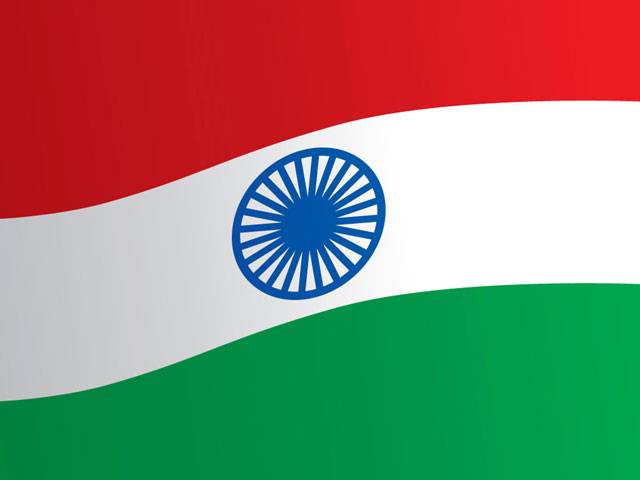LAHORE – SALMAN ABDUHU - Decision to eliminate Negative List, under the MFN status, in 10 months by December 2012 will not allow the government to adopt trade defence measures against expected flooding of Indian goods in the Pakistani market.
“This new approach is not understandable as this leaves no time at all for establishing infrastructures for a level playing field for trade with India,” said PAAPAM Chairman Syed Nabeel Hashmi.
While talking to The Nation, Hashmi welcomed the deferment action of Prime Minister Yousuf Raza Gilani, however, he lamented that it is very strange that the Ministry of Commerce had proceeded to get approval of a Negative List without taking all the stakeholders into confidence.
It is to be noted here that Federal Commerce Secretary Zafar Mahmood, in a secret summary sent to the cabinet on MFN issue on 10th of this month, proposed that the Ministry be allowed to phase out the Negative List in three stages on quarterly basis after approval of the cabinet with quarters ending on June 30, Sept 30, and Dec 31 of the year 2012, it was learnt.
However, the prime minister sent back the summary asking the Ministry of Commerce to again consult the real stakeholders for preparation of the negative list, official sources said.
As per official sources, the summary says that for the normalization of trade, the proposed negative list must be ultimately phased out, and the justification of it is that India specific negative list would be violation of Article 17 of the SAFTA agreement which clearly restricts countries from adopting any measures that diminishes or nullifies any concessions already agreed.
The Paapam chief pointed out that although we had given our recommendations on granting MFN status to India the commerce secretary never came back to us to finalize what actually is being presented for approval to the ECC.
“We strongly object to the fast track methodology being adopted by the Ministry and fear that there will be severe damage to the growing automotive engineering sector if this matter is not handled with care. We have also never given our consent for the phase out plan of the negative list by the end of this year,” Hashmi observed.
He said that the industry is deeply perturbed, and had already lodged their protest. Regrettably, none of the key industries were taken into confidence, neither in the initial decision of eliminating Negative List in December 2012 nor in the current proposal for quarterly phasing out of the Negative List.
He said that a lot of homework needs to be done by a number of our government organizations, which has been elaborated upon in our roadmap that is with them now. Without putting in place these proposals and necessary safeguards ar it is not fair to ask us to open our markets to India. There is also no strategy to ensure that our auto parts, cars, tractors or motorcycles being manufactured in Pakistan can be exported to India, he added.
“Ministry of Commerce’s own two departments including the TDAP and NTC are least prepared to handle the marketing or damage control of Pakistan’s engineering industry. Over the last years our sector has been ignored and all our recommendations to enhance Pakistan’s image as an engineering destination have never being taken seriously. In fact the Secretary commerce or DG TDAP never bothered to respond to our requests to increase our participation in international trade fair, which at the moment are very low.”
Chairman PAAPAM once again requested that the association’s recommendations must be implemented. We shall fully support opening up trade with India if our proposed roadmap is implemented in letter and spirit by the government ministries concerned. We shall soon be meeting the Prime Minister to update him on the actual situation, he added.
In this regard, the spokesman of Pakistan Automotive Manufacturers Association (PAMA) said: “The industry fails to understand how the rationale for protecting local industry would change from one quarter to the next quarter.” Instead of negotiating a long term phase out plan in the interest of the local industry, the government has tried to take shortcuts and practically sold out the national interests, he added.
It is to be noted here that the sectors and respective number of 636 items included in the proposed Negative List are: food and agriculture (16); minerals (3); chemical (4); pharmaceutical (32); plastics (74); rubber (24); paper and wood (55); textile and clothing (77); iron and steel (25); and auto sectors (311).
Friday, April 19, 2024
No steps to stop Indian goods flow

8:09 AM | April 19, 2024
Empowering Women: The Vision of Maryam Nawaz Sharif
8:37 PM | April 19, 2024
President Zardari confers Nishan-i-Imtiaz (M) award on Turkish CGS
8:23 PM | April 19, 2024
NA speaker suspends two MNAs for disruptive behavior during presidential address
8:20 PM | April 19, 2024
PM Shehbaz orders accelerating countrywide drive against smuggling
8:19 PM | April 19, 2024
LHC allows PTI to hold rally in NA-119
8:18 PM | April 19, 2024
A Tense Neighbourhood
April 19, 2024
Dubai Underwater
April 19, 2024
X Debate Continues
April 19, 2024
Hepatitis Challenge
April 18, 2024
IMF Predictions
April 18, 2024
Kite tragedy
April 19, 2024
Discipline dilemma
April 19, 2024
Urgent plea
April 19, 2024
Justice denied
April 18, 2024
AI dilemmas unveiled
April 18, 2024
ePaper - Nawaiwaqt
Advertisement
Nawaiwaqt Group | Copyright © 2024





